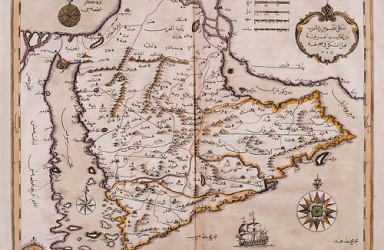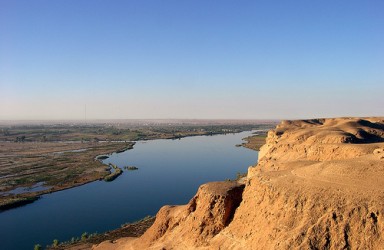Population Exchange and Identity Formation: The Case of Post-Partition India
The close association of population exchange and identity formation has been particularly evident in the case of India. Its independence and partition created two states and peoples, thus redefining the concepts of ‘us’ and ‘them’ in the region. This pivotal event, having ensued more than six decades ago, continues to determine the dynamics of inter-state relations in the subcontinent and impact upon national identities
The 2003 Invasion of Iraq under the Microscope
The Bush administration’s intention to swoop down from the sky, finish off a regime, pull back and reload the shotgun ready for the next target stalled as Iraq took far longer and was far more complex than was anticipated.
The West, Islam and Modernity
The relationship between West and Islam is more relevant than ever. The terrorist attacks in the US and Europe at the beginning of the new millennium, seemed to confirm the ideas expressed by Samuel Huntington and Francis Fukuyama. However, critical engagement with such issues requires a deeper understanding of West, Islam and Modernity, avoiding essentialist definitions of single sets of well-defined and separated ideas.
Economic Development and Democratisation in the Middle East
There is an incompatibility between the purpose and mode of Middle Eastern economic development to date and the fraught efforts towards forms of democracy across the region. Additionally, the importance of certain economic developments to specific actors has successfully outweighed the importance of democracy in the region, and will persist in doing so for the foreseeable future.
European Powers and the Creation of the Middle Eastern State System
The role of the European powers was crucial in the making of the Middle East system not only because they were responsible for the incongruence of land partition after the Ottoman Empire and its consequent conflicts, but also because they established very important starting points for many trans-national phenomena by aiming to incorporate the area to the global capitalist system.
Separate but (Un)Equal: Gender Segregated Bus Lines of Jerusalem
There is a tendency to equate the metaphor of travel and mobility with emancipation and the ability to move freely between cultures or continents. This work examines the implications of gender segregation in Ultra Orthodox communities of Jerusalem, by looking more closely at women’s experiences of the journeys made (both actual and allegorical) between the public and private spheres.
Why Did the Soviet Union Invade Afghanistan?
The Soviet intervention in Afghanistan was a costly and, ultimately, pointless war. However, exactly why the Red Army wound up in direct military conflict, embroiled in a bitter and complicated civil war—some 3,000 kilometres away from Moscow—is a point of historiographical uncertainty. Little known and appreciated for its significance, the Soviet-Afghan War was one of the turning points of the late Cold War.
‘Conflict Management Sows the Seeds of Future Conflict’ A Case Study of the Kashmir Conflict
India and Pakistan have come no closer to resolving their disagreements than what was attempted in 1949 because they are firmly grounded in a solution that is zero-sum, state centric and plagued by internal domestic political pressure.
Sustainability and Water Resources in the Middle East
The Middle East is one of the most water-short regions in the world: almost all countries in the region (with the arguable exceptions of Iran and Turkey) have less (in most cases, significantly less) water available – through rainfall and other sources – than the 1,000 cubic metres per person, per year, which is traditionally taken to be a minimum human requirement.
The Status of Middle-Eastern Palestinian Refugees Outside of Israel-Palestine
The issue of Palestinian refugees is both an important and highly emotional matter in Middle-Eastern politics, representing one of the most divisive and enduring problems of 20th and 21st century Middle-Eastern affairs.







